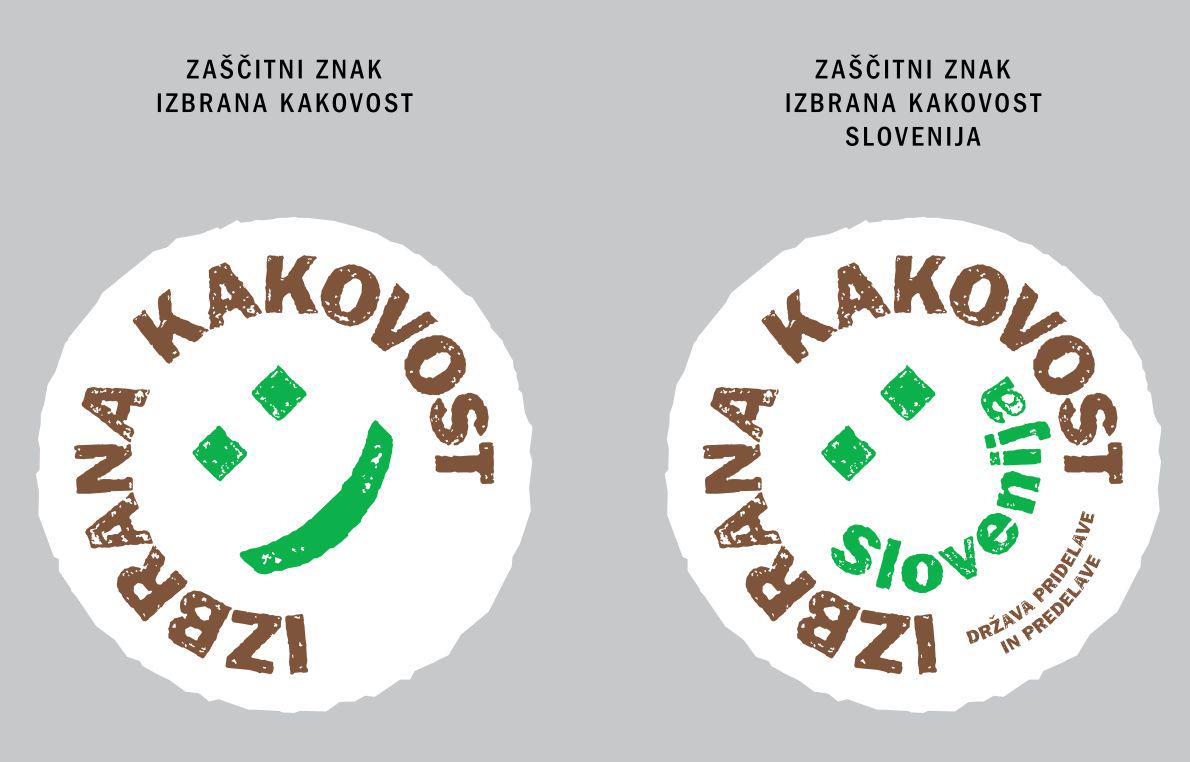
The Ministry of Agriculture last week launched a campaign intended to promote Slovenian food. Entitled “Naša super hrana” (“Our Wonderful Food”), the campaign seeks to raise awareness about the “Izbrana kakovost – Slovenija” (“Select Quality – Slovenia”) trademark. Their message is that Slovenia is a country in which high-quality food is produced, not least because most farms are small and because the climate is conducive to agriculture.
Basically, “Naša super hrana” is a label similar to “bio”, “organic”, and a number of other similar labels. The label guarantees that the food was grown and processed entirely within Slovenia, and that the food didn’t travel too far. Short food supply chains also help the food retain as many nutrients as possible. The campaign says that freshly-picked cherries contain 6 milligrams of vitamin C per 100 grams, but after a week this value drops to 2.5 milligrams. Moreover, local food contains fewer chemicals and requires less refrigerating. The “Naša super hrana” label contains information on where the food was processed and where the ingredients were sourced from. Conversely, the farmer will be able to find out where his food was sold. The Ministry of Agriculture claims that the food can be tracked “from farm to fork”. These products will, moreover, be subject to stricter regulations than other foodstuffs. Animals, for example, can only be fed certain types of feed.
The dairy and meat sectors are already a part of the program. Next year, fruit will join the program, followed by vegetables in 2018.
All participating food growers and producers will be subject to regular inspections to ensure they are complying with the required standards. They will need to renew their certificates every year, and they will be regularly inspected by veterinarians and the following institutions: Bureau Veritas, Inštitut za kontrolo in certifikacijo (Institute for the Control and Certification), and Inštitut za kontrolo in certifikacijo v kmetijstvu in gozdarstvu Maribor (Institute of Inspection and Certification in Agriculture and in Silviculture). The Ministry of Agriculture says that Slovenia’s food safety regulations are “already very good” and “among the best in the EU”.
Let’s take a look at poultry to see what the label really means. If the label says “Izbrana kakovost – Slovenija”, the chicken was hatched, raised, harvested and packaged in Slovenia. Last year, food safety inspectors found that some Slovenian butchers falsely advertised and sold their meat as “local”, even though the meat was only packaged in Slovenia. With the new label, the consumer should be on the safe side. Live chickens can only be transported for a maximum of 200 kilometres, and the name of the breeder must be shown on the label.
The list of banned feed ingredients is very long. Breeders use various feed mixtures, and these often contain seafood, grains, and animal proteins. However, the “Izbrana kakovost – Slovenija” label prohibits the use of animal proteins in chicken feed.
It also prohibits the use of the following ingredients (although regular chicken feed may contain these ingredients): potato peels, coffee husks, citrus pomace, fish liver oil, fish flour, concentrated fish solubles, and prawns. Moreover, the chickens must not consume pork haemoglobin powder, pork blood plasma powder, hydrolyzed animal proteins, hydrolyzed gelatine, or protein derived from certain microorganisms.
The list is almost identical for beef, but there is one difference: at least 50 percent of the cattle’s diet must be hay or grass. Likewise, live cattle can only be transported for a maximum of 200 kilometres (and for up to 8 hours).
The use of antibiotics is tightly regulated. The regulations specify that antibiotics can only be used for the treatment of individual animals under the supervision of a veterinarian. The antibiotics must be used in compliance with their specifications.
In many countries, antibiotics are used prophylactically, and they are administered to all animals in a group. According to a report commissioned by the European Medicines Agency, Slovenia has some of the toughest restrictions on the use of antibiotics in food animals in Europe.
Aljoša Masten; translated by D. V.

































































